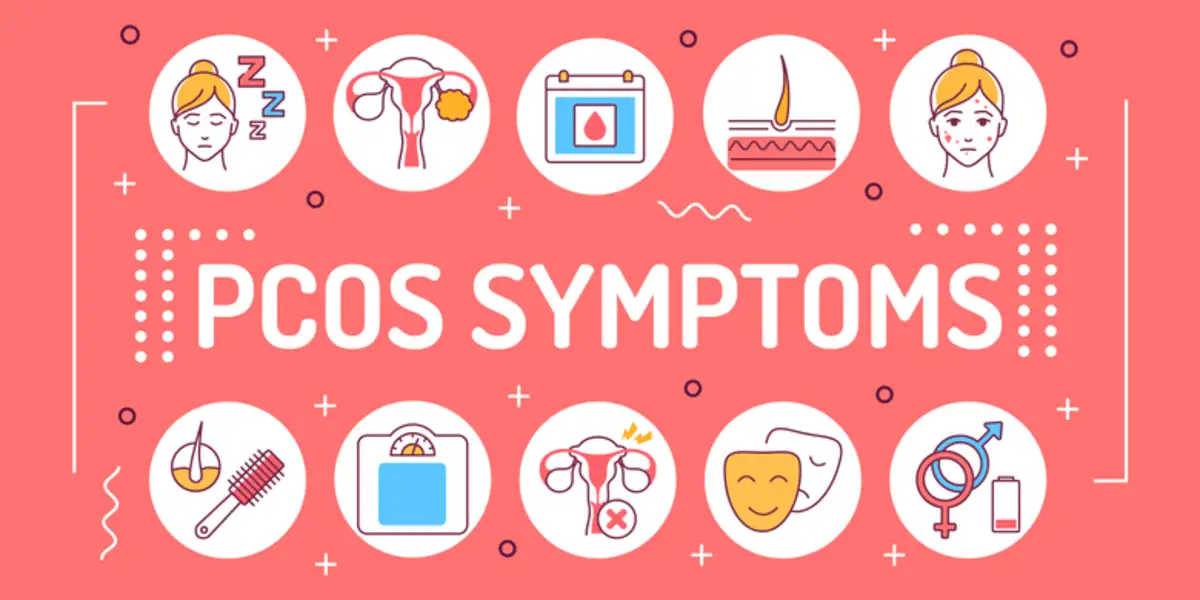Polycystic Ovary Syndrome (PCOS) is a common hormonal disorder that affects individuals with ovaries, primarily women of reproductive age. It is characterized by a combination of symptoms related to hormonal imbalances and the ovaries. Here’s an overview of PCOS and its primary symptoms:
Overview of PCOS:
PCOS involves disruptions in the normal hormonal balance, particularly involving insulin and androgens (male hormones), which can lead to various symptoms and health issues. While the exact cause is not fully understood, genetic factors and insulin resistance are thought to play a role in its development.
Primary Symptoms and Characteristics:
PCOS presents with a range of symptoms that can vary from person to person. Not all individuals with PCOS will experience every symptom, and the severity can also differ. The primary symptoms and characteristics of PCOS include:
1. Irregular Menstrual Cycles: Women with PCOS often experience irregular menstrual cycles, which may manifest as infrequent periods, heavy or prolonged bleeding, or even skipped periods.
2. Ovulation Issues: Anovulation, or lack of regular ovulation, is common in PCOS. This can lead to difficulty in conceiving and fertility challenges.
3. Hyperandrogenism: Elevated levels of androgens (male hormones) can cause symptoms such as excessive hair growth on the face, chest, and back (hirsutism), as well as acne and oily skin.
4. Polycystic Ovaries: On ultrasound imaging, the ovaries of individuals with PCOS might appear enlarged and contain multiple small cysts. These are actually follicles that have not matured and released an egg during the menstrual cycle.
5. Insulin Resistance: Many women with PCOS have insulin resistance, a condition in which the body’s cells do not respond effectively to insulin, leading to higher levels of insulin in the blood. Insulin resistance can contribute to weight gain and metabolic issues.
6. Weight Gain and Obesity: While not all women with PCOS are overweight, obesity and weight gain are commonly associated with the condition, and they can exacerbate symptoms.
7. Skin Issues: Acne, oily skin, and dark patches of skin (acanthosis nigricans) can occur due to hormonal imbalances.
8. Mood Disturbances: Some individuals with PCOS may experience mood swings, depression, or anxiety.
It’s important to note that PCOS is a complex condition, and each individual’s experience can be unique. Early diagnosis and management are crucial to preventing long-term health issues like diabetes, cardiovascular disease, and infertility. If you suspect you have PCOS or are experiencing symptoms, it’s recommended to consult a healthcare provider for proper diagnosis and guidance.
Consult a gynecologist Dr. Arohi Tasgaonkar for personalized advice and guidance at Gynecologist in Waghbil, at Complete Women’s Care

